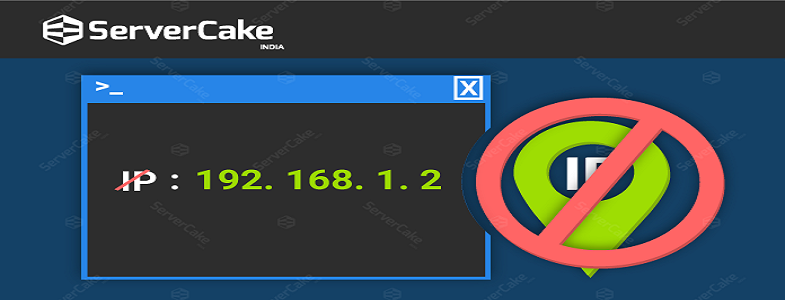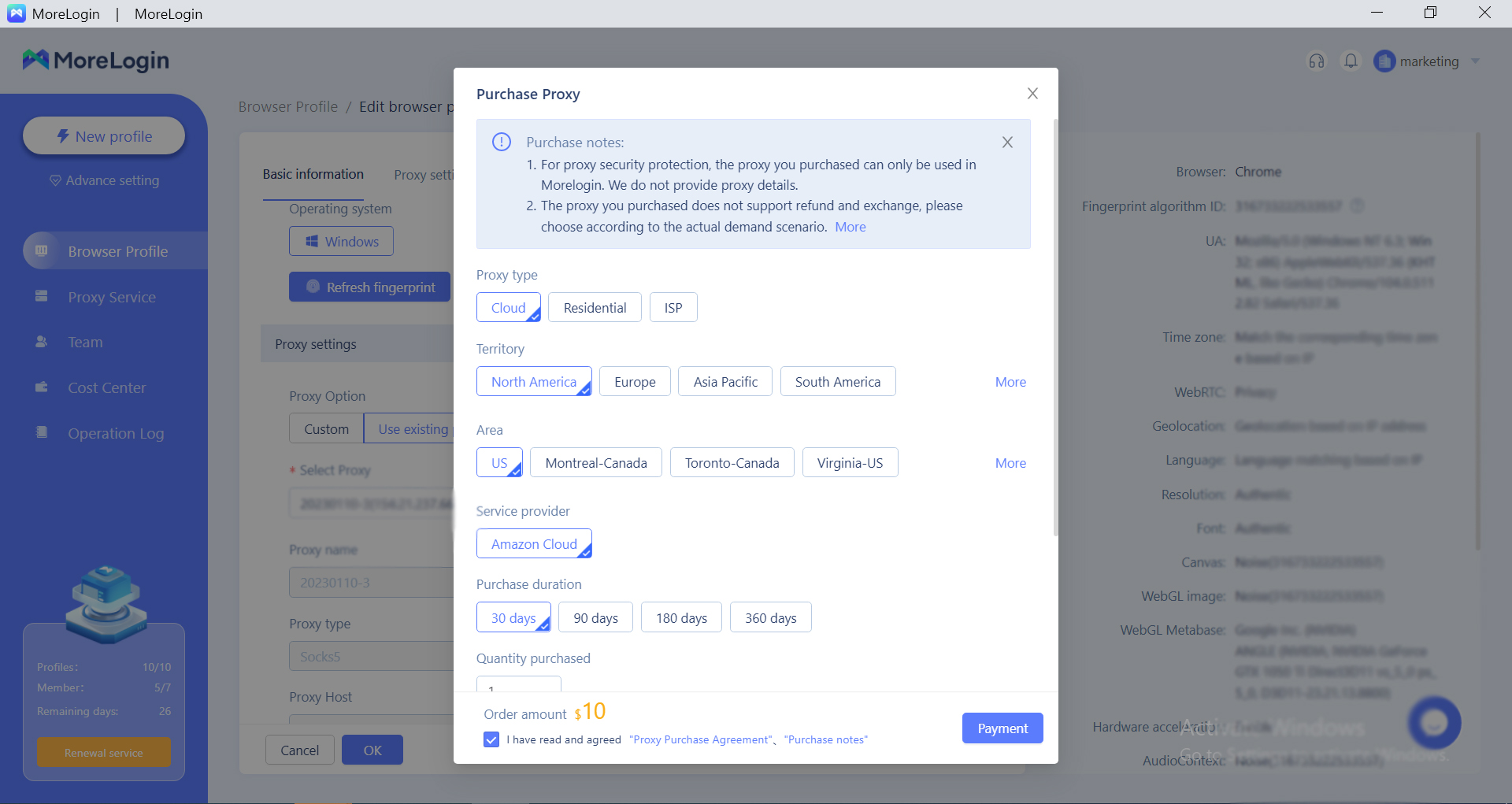
- Product

- Pricing
- Affiliate Program
- Use Cases
- Resource


IP blocking (or IP ban) is a form of restriction that blocks specific IP addresses from accessing websites, networks or services. It is oftentimes used to prevent malicious activities online and protect the security of users. IP blocking denies access to certain sites by restricting the devices with specific IP address from accessing those sites.
Your IP address might be blocked for several reasons. Here are a few common causes:
Spam or malicious activity: Your Internet Service Provider( ISP) or website may block your IP address if it has been used to shoot spam or engage in other forms of online misconduct. It's done to help vicious exertion from passing on the point or service and to help other druggies from being harmed.
Security Breach: If your device is infected with malware or used to pierce unauthorized coffers, your IP address may be blocked to help further security breaches.
Geographic restrictions: Certain websites or services may block IP addresses from certain countries or regions due to legal or licensing restrictions.
Exceeding operation limits: Certain websites or services may block IP addresses that exceed certain operation limits, similar as the number of requests made to the server in a given period of time. This is generally done to cover the point or service from overuse or abuse and to insure fair access to coffers for all druggies.

Blocking an IP address prevents traffic from that specific IP from reaching a website or service. This means that anyone trying to access her website or service from that address will not be able to access it and will see an error her message when trying to connect.
Below are some of the most common effects of IP bans:
Restricted website access: You may not be able to access certain websites if your IP address is blocked. For example, due to suspicious activity, a large number of requests, or the site being GEO-restricted.
Mail delivery issues: IP blocking can also affect mail delivery. For example, if an IP address is associated with spam, it may be blocked by an email server and email sent from that IP address will not be delivered.
Slow network speeds: IP blocking can also slow down network speeds because user devices must find alternate paths to access websites and services.
Difficulty accessing online services: You may also have difficulty accessing online services such as online banking, social media, and online shopping when your IP address is banned.
Business Disruption: IP blocking can severely impact a business, resulting in lost revenue and reputational damage.
It is important to proactively prevent IP bans using Proxies, VPNs, rate limiting, email authentication, etc.
1. Use a reliable IP address: IP addresses from dynamic IP services or data centers are often associated with spam and abuse, so remember to use IP addresses from reputable and stable providers.
2. Anti-detection browsers: Fingerprint browsers can enhance your privacy and security, bypass GEO-restrictions, and prevent your IP address from being blocked. In addition, the combination of proxy and anti-detection browser provides excellent anonymity, greatly improves IP security, and can even bypass website protection systems. For example, if you log in to the same place with multiple accounts, it will be difficult to get banned. MoreLogin generally is a proxy-based browser that helps change the digital fingerprint of your computer and browser.
3. Use a Proxy: Use PiaProxy server to connect your devices to the internet and ensure IP addresses are anonymous. Routing through PiaProxy. This allows you to bypass GEO-restrictions, hide your IP address, and bypass IP blocks.
 In order to use PiaProxy to bypass IP blocking, simply configure a PiaProxy connection using the MoreLogin browser and enter the address and port number. After successfully setting up your connection, your Internet traffic is routed through a proxy server that can hide your IP address and bypass IP blocks.
In order to use PiaProxy to bypass IP blocking, simply configure a PiaProxy connection using the MoreLogin browser and enter the address and port number. After successfully setting up your connection, your Internet traffic is routed through a proxy server that can hide your IP address and bypass IP blocks.
4. DNS server: A DNS server is a server that translates domain names into IP addresses and allows devices to access websites and other Internet resources. Using a different DNS server is an effective way to change your IP address and avoid IP blocking. Several public DNS servers are available: Google Public DNS, Cloudflare DNS, or OpenDNS. Using a different DNS server is an effective way to change your IP address and avoid IP blocking. However, it is important to remember that using different DNS servers does not guarantee that IP blocking will be avoided and additional measures such as rate limiting or email authentication protocols may be required.
The most important decision you need to make here is using the right type of IP service. The type of proxy service provider you choose greatly affects the success of the tasks you perform on your website. MoreLogin offers a pool of IP addresses to choose from and its superior performance has proven to be just what you need to get the job done. Manage multiple social media accounts with the IP you want If possible, we recommend using Residential IPs, as they are real IPs from your ISP that are used for business purposes. This IP is an account and does not rotate. Perfect for filling out forms and posting comments online.
Manage multiple social media accounts with the IP you want If possible, we recommend using Residential IPs, as they are real IPs from your ISP that are used for business purposes. This IP is an account and does not rotate. Perfect for filling out forms and posting comments online.
Rotating IPs are not bad and can be used when crawling with bots or crawlers. This type of IP allows you to bypass blocks for countries, cities, specific carriers and even ASNs.
You can also avoid being blocked with the appropriate settings. Some websites have limits on the maximum number of requests within a certain time frame. Exceeding this limit indicates that you are using a bot. You'll either receive a captcha to resolve, or even get your IP address blocked entirely. To prevent this, rotate IPs based on the number of requests.
Some websites use a maximum number of requests and block requests from IPs in certain locations. To fix this, use an IP outside of your target city or region and rotate the IP based on the maximum number of requests the IP can send.
It's significant to consider your specific needs and circumstances when choosing a method to avoid IP blocking.
If you need to access websites between different countries or regions, you can choose Proxy or VPN. If you need to browse websites and work closely while avoiding IP blocks, Anti-Detect Browser MoreLogin always be here for you.